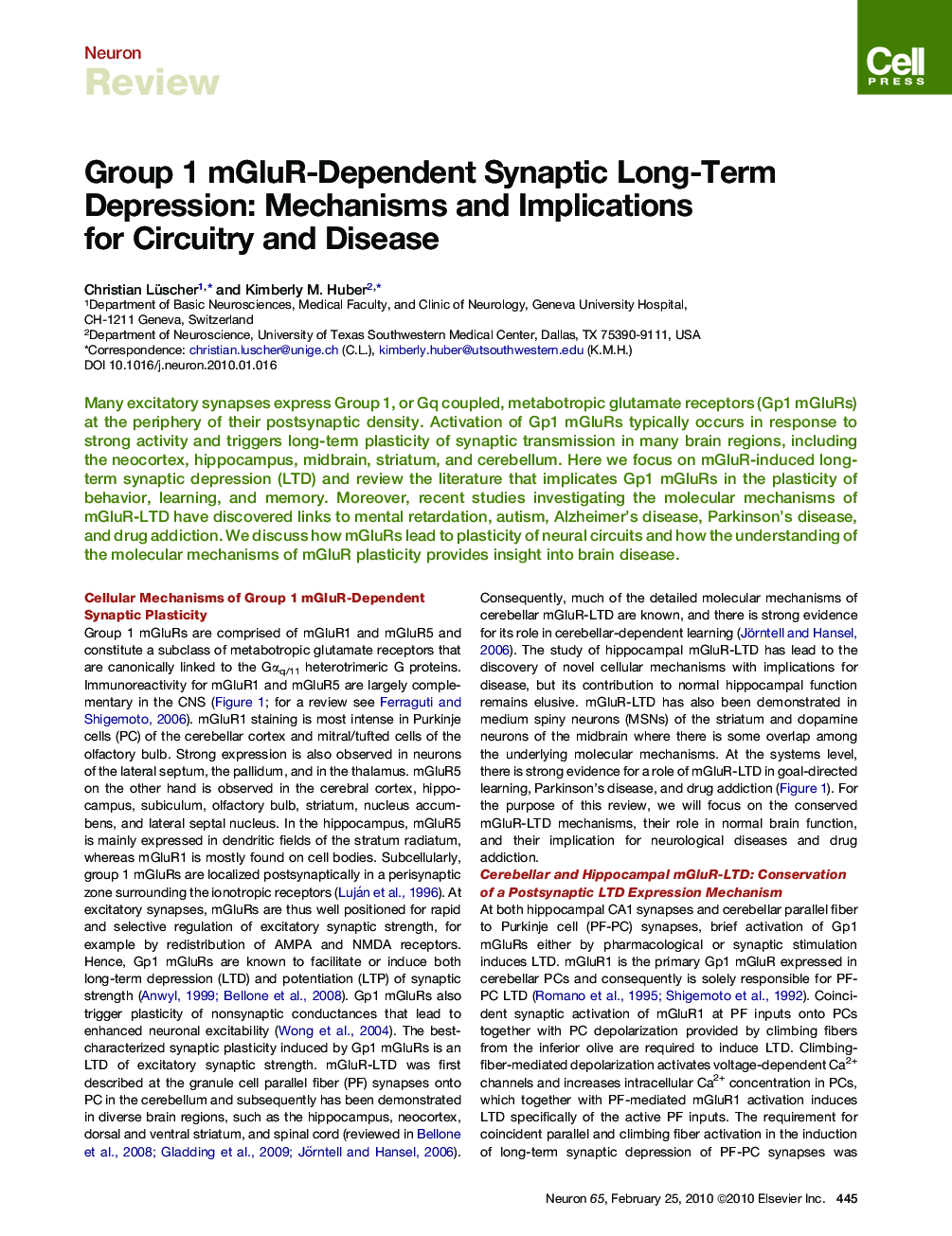| Article ID | Journal | Published Year | Pages | File Type |
|---|---|---|---|---|
| 4322647 | Neuron | 2010 | 15 Pages |
Many excitatory synapses express Group 1, or Gq coupled, metabotropic glutamate receptors (Gp1 mGluRs) at the periphery of their postsynaptic density. Activation of Gp1 mGluRs typically occurs in response to strong activity and triggers long-term plasticity of synaptic transmission in many brain regions, including the neocortex, hippocampus, midbrain, striatum, and cerebellum. Here we focus on mGluR-induced long-term synaptic depression (LTD) and review the literature that implicates Gp1 mGluRs in the plasticity of behavior, learning, and memory. Moreover, recent studies investigating the molecular mechanisms of mGluR-LTD have discovered links to mental retardation, autism, Alzheimer's disease, Parkinson's disease, and drug addiction. We discuss how mGluRs lead to plasticity of neural circuits and how the understanding of the molecular mechanisms of mGluR plasticity provides insight into brain disease.
